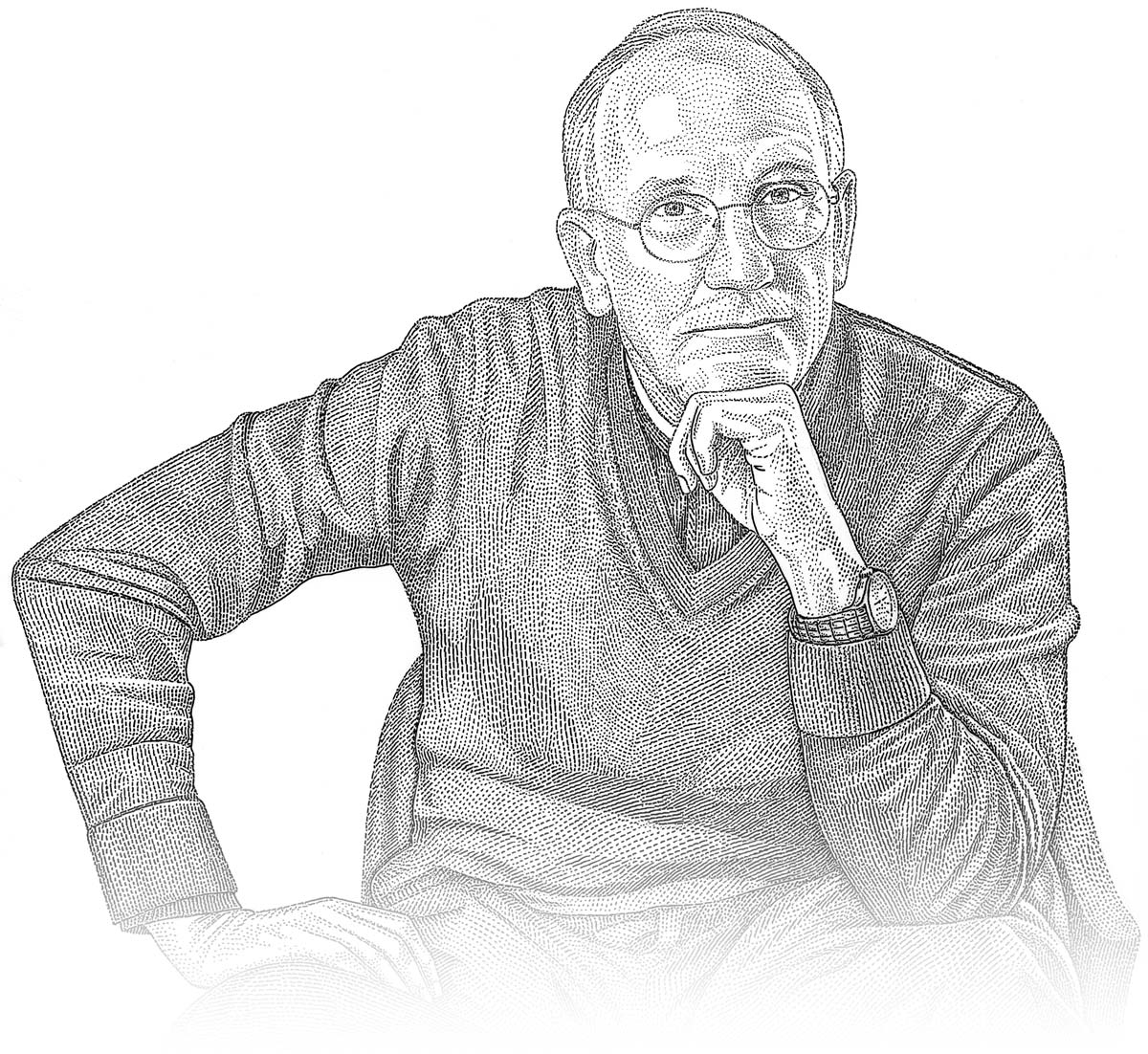
The Service of Father McShane

That commitment to service left an indelible mark on McShane’s son: Joseph M. McShane, who would go on to become a Jesuit and the president of Fordham University. “[My father] was immensely proud of the Law School and grateful for his Fordham education,” Father McShane said. “The emphasis on service really changed him.”
That ethos was the driving force behind Father McShane’s transformative leadership of the University. He has been intimately involved with the Law School during his tenure, from reshaping the physical campus to enhancing the school’s academic quality.

“His tenure has raised the stature of the University as a whole,” said Law School Dean Matthew Diller, “and that has greatly benefited the Law School.”
A Vision of Excellence
Father McShane’s devotion to the project was evident from the start. “It was his vision,” said Dean Diller. “He was committed to the project early, and he worked to make it happen. He wanted a building not just to house the classes, faculty, and administration, which we desperately needed, but a building that would raise our aspirations, enable students to think in loftier ways, and send a message to the world about the excellence and caliber of the University.”

With its breathtaking views and skylit atrium, the 468,000-square-foot building has a modern moot and trial court facility and a 90,000-volume law library. The natural light, clean lines, and feeling of spaciousness match the Law School’s ambitions. “When prospective students come on admitted student days, they are bowled over by it,” said Dean Diller. “Before we had the building, we were an excellent law school, but people would look around and think, ‘It doesn’t look like a great law school.’ … Now they look around and it all makes sense. It encourages you to elevate everything you do.”
While the first nine stories of the building are occupied by the Law School, the upper floors serve as a residence hall for 430 undergraduates. Sharing the building with undergraduates has promoted synergies, both formal and informal. “Both groups like to sneak into the other’s cafeteria,” Father McShane noted.
Leadership Through Crisis
“We wanted to take the long view and protect the quality of the student body,” Father McShane said. “The recession wasn’t going to last forever, and we didn’t want to be hamstrung by short-term thinking.”
The move proved to be beneficial. Today, the Law School’s admissions process is more selective than ever, and the members of its faculty are nationally respected as leading scholars in a wide variety of areas. “Our reputation has grown far beyond New York,” said Father McShane. “The Law School is a calling card that allows us to open doors.”

Twelve years later, as New York City became the epicenter of the COVID-19 pandemic, Father McShane’s steady hand at the helm helped the Fordham community endure through some of the most challenging years in its history.
“He put people first,” said Dean Diller.
As a result, the University emerges from the pandemic with the strength to continue to fulfill its mission. This success led New York state to ask Father McShane to serve on the New York Forward Advisory Board to help shape the state’s plan for reopening after the pandemic.

A Tradition of Service
Palmina Fava ’97, president of the Fordham Law Alumni Association, is grateful to Father McShane for his “tireless efforts to increase Fordham’s national reputation” and his guidance of capital campaigns that led to expanded student scholarships. His steady leadership and good humor “transformed Fordham and the lives of its students,” she said.
Fordham Law School remains a tradition in Father McShane’s family: His younger brother Thomas A. McShane is a member of the Class of 1982, and his niece graduated in May 2021. But what has also remained is the fealty to serving others that the elder McShane modeled for his son.
Father McShane’s leadership has undergirded that mission, according to Dean Diller. “He sets a moral compass for the University,” said Dean Diller. “A lot of tough things have happened in the world, and he communicated strongly about those events, always from the vantage point of looking to our deeper humanity and our better selves, and asking us to rise above our individual situations.”